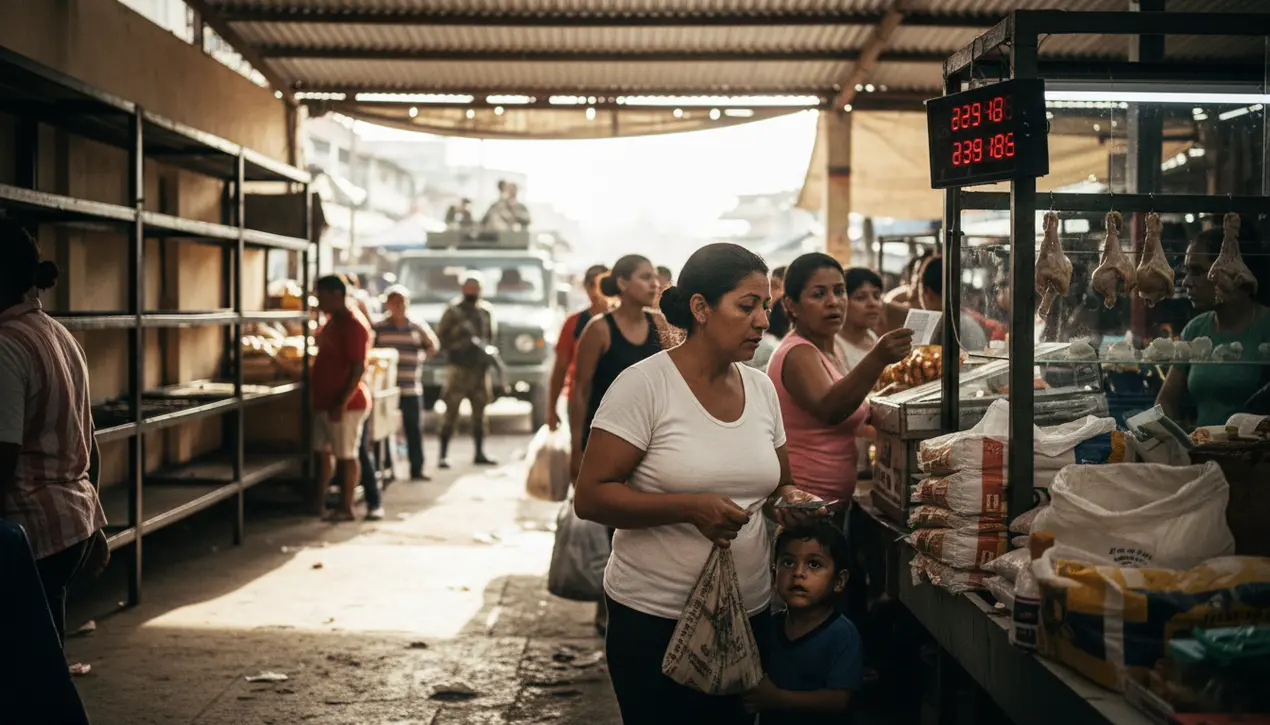
Politicsconflict & defenseMilitary Operations
Venezuelans Prioritize Food Concerns Over US Military Threat.
AN
Anna Wright
14 hours ago7 min read7 comments
In the shadow of American warships conducting exercises in the Caribbean, a more intimate and devastating conflict wages within the homes of ordinary Venezuelans. The geopolitical saber-rattling, a familiar soundtrack to the nation's recent history, has been drowned out by the stark, immediate sound of empty stomachs and the frantic calculations at grocery stores, where the price of a kilogram of maize flour—the essential base for arepas, the national staple—has skyrocketed past what a minimum-wage earner makes in a week.This isn't an abstract political debate; it's a daily, grinding crisis of survival. While international headlines focus on the military posturing between the Maduro government and the United States, the real, palpable enemy for the woman in a barrio of Caracas is not a foreign navy but the relentless inflation that has turned a simple meal into a luxury.The narrative pushed by state media, framing the nation as besieged by imperialist forces, rings hollow when the primary siege is economic, a complex web of crippling sanctions, profound domestic mismanagement, and a collapsed oil industry that has left the population scavenging for dignity. One can analyze this through the lens of social policy failure: the collapse of the CLAP food subsidy program, once a lifeline, now a symbol of corruption and scarcity, has left families entirely exposed to the whims of a predatory black market.The personal impact is devastating; we see mothers skipping meals to feed their children, fathers taking on dangerous informal work for a pittance, and a generation of young people whose aspirations have been narrowed to the single goal of finding enough to eat. This prioritization of food over geopolitics is a profound human truth, a testament to the hierarchy of needs that no political ideology can overwrite.It echoes the struggles of women in other nations buckling under economic collapse, from Lebanon to Zimbabwe, where the universal language of a parent's worry for their child's hunger transcends borders and political allegiances. The situation presents a critical, empathetic challenge to the international community: how do external pressures, intended to destabilize a government, inevitably and most severely punish the most vulnerable citizens? The conversation must shift from battleships to breadbaskets, from naval blockades to nutritional deficits, because for the people of Venezuela, the most urgent front line is their own kitchen table.
#Venezuela
#US military threat
#food prices
#economic crisis
#sanctions
#featured
Stay Informed. Act Smarter.
Get weekly highlights, major headlines, and expert insights — then put your knowledge to work in our live prediction markets.
Comments
Loading comments...
© 2025 Outpoll Service LTD. All rights reserved.